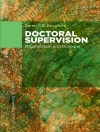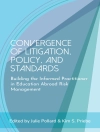How can education become a transformative experience for all learners and teachers? The contributors to this volume contend that the Scholarship of Teaching and Learning (So TL) can provide a strong foundation for the role of education in promoting social justice. The collection features contributions by an array of educators and scholars, highlighting the various ways that learners and teachers can prepare for and engage with social justice concerns. The essays offer reflections on the value of So TL in relation to educational ethics, marginalized groups, community service and activism, counter narratives, and a range of classroom practices. Although the contributors work in a variety of disciplines and employ different theoretical frameworks, they are united by the conviction that education should improve our lives by promoting equity and social justice.
Inhaltsverzeichnis
Introduction: Unlocking So TL’s potential for Transformative Education / Delores D. Liston and Regina Rahimi
I. Examining Ethics Towards Social Justice
1. Ethics and Social Justice: A Review of Theoretical Frameworks and
Approaches and Pedagogical Considerations / Tiffany Chenneville
2.Teaching the Ethics of Caring: Using Nursing History to Integrate Race Consciousness into Professional Values / Melissa Garno and Carole Bennett
II. Focusing on Marginalized Groups in So TL
3. The Scholarship of Teaching and Learning and the Status of Women / Maxine Atkinson and Scott T. Grether
4. Teachers of Minorities as Change Agents: A Global Model / Mary Jo Benton Lee and Diane Kayongo-Male
III. Community Service, Activism, and Civic Consciousness
5. Learning as We Go: Risk-Taking and Relationship-Building Through Service-Learning in Belize / Mary R. Moeller, Lonell Moeller, and Susan Filler
6. Champions for Health in the Community: Critical Service-Learning, Transformative Education and Community Empowerment / Karen S. Meaney, Jo An M. Zimmermann, Gloria Martinez-Ramos, Yongmei Lu, and Jackie Mc Donald
7. Teacher Candidates‘ Dispositions for Civic Engagement and Social
Responsibility: Discernment and Action / Patricia Calderwood, Stephanie Burrell Storms, Thomas Grund, Nicole Battaglia, and Emma Sheeran
8. Transforming Student Ideas about Community Using Asset-Based Community Development Techniques / Lisa Garoutte
9. Transforming Awareness into Activism: Teaching Systems and Social Justice in an Interdisciplinary Water Course / Cathy Willermet, Anja Mueller, and David Alm
IV. Classroom Practices of Reflection and Counter Narratives
10. Swinging with a Double-Edged Sword: Using Counterstories to Fight for
Social Justice in the Classroom / Scott D. Farver and Alyssa H. Dunn
11. When Walking the Walk Changes the Talk: Using Critical Reflection to Inform Practices of Social Justice Research and Social Justice Education / Sabrina Ross and Alma Stevenson
12. Consciousness Raising for 21st Century Faculty: Using Lessons from
Diversity Flashpoints / Alejandro Leguizamo and Jennifer Campbell
13. ‚The Way I View the World Has Changed‘: Student and Teacher Reflections on Transformative Social Justice Education / Annemarie Vaccaro, Athina Chartelain, Sarah Croft, Brooke D’Aloisio, Tiffany Hoyt, and Brian Stevens
14. Using Attitude Measures and Student Narratives about Diversity to Enhance Multicultural Teaching Effectiveness / Robert Lake and Kent Rittschof
15. Building Student Self-Awareness of Learning to Enhance Diversity in the Sciences / Erin E. Peters-Burton and Giuseppina Kysar Mattietti
V. Applied Classroom Practices and Social Justice
16. Reimagining the Student Evaluation: Using Democratic Frameworks in College Teaching and Learning / Phillis L. George
17. Minding the Brain: Three Dimensions of Cognition in Social Justice Curriculum / Daniel J. Glisczinski
18. Using Applied Learning to Engage with Social Justice: Lessons Learned from an Online Graduate Course in Social Justice / James M. De Vita
Conclusion
SOTL: Next Steps Toward Social Justice / Delores D. Liston and Regina Rahimi
Index
Über den Autor
Delores D. Liston is Professor of Curriculum and Foundations at Georgia Southern University. She is author of Joy as a Metaphor of Convergence: A Phenomenological and Aesthetic Investigation of Social and Educational Change, (with Natalie Adams, Christine Shea and Bryan Deever) Learning to Teach: Critical Approaches to the field Experience, and (with Regina Rahimi) Pervasive Vulnerabilities: Sexual Harassment in School.
Regina Rahimi is Associate Professor and Interim Department Head of Secondary, Adult and Physical Education at Armstrong State University. She is author (with Delores D. Liston) of Pervasive Vulnerabilities: Sexual Harassment in School.












